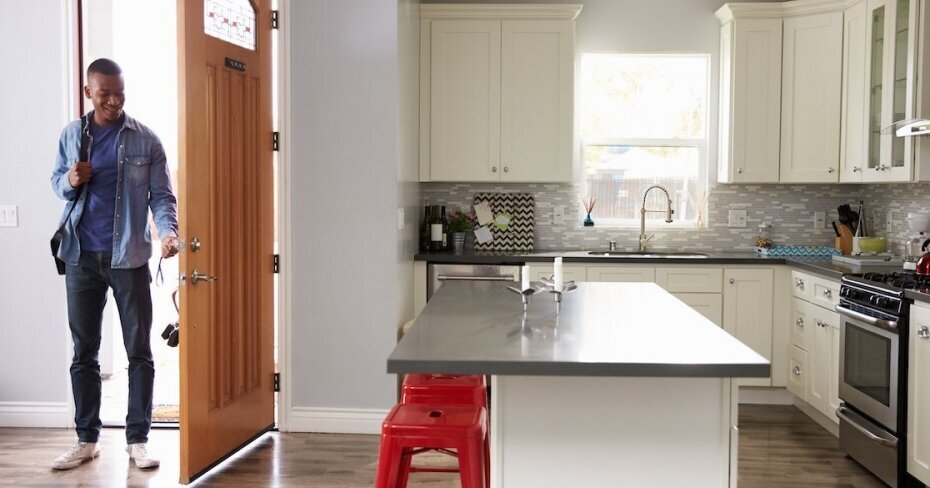Is your home insurance void if you’re away from home for more than 30 days?
By: Renee Sylvestre-Williams on October 3, 2024
This article has been updated from a previous version.
With cooler weather fast approaching, snowbirds and digital nomads may be planning to flee their Canadian homes to warmer abodes. If you’re among these long-term travelers, you’re probably preparing a checklist of things to do before you leave, beginning with all the people you need to inform of your departure: friends and family, your internet and cable provider, and your home insurance company.
After all, there’s a common belief that when a home is left empty for 30 days or more without someone to check on it, your insurance company could void your policy.
But is this actually true? We consult an insurance expert to figure out whether your snowbird to-do list needs to include telling your insurance provider that you’re, say, headed to Arizona for five months.
Unoccupied vs. vacant homes
Before getting to the 30-day rule, it’s important to clarify the language that insurance providers like to use.
At first glance, these two words —”unoccupied” and “vacant” — look like synonyms for “no one’s home”. But as a matter of fact, they mean different things when it comes to home insurance policies.
In insurance terms, “unoccupied” means that the owner of the house plans on returning after 30 days. The furniture and appliances are still in the home and utility payments are still active.
In contrast, “vacant” means that the owner has abandoned the house: They’ve removed any furniture and appliances and turned off the utilities. If a home is assumed to be vacant, then your home insurance policy could be voided.
Cottages don’t fall under “vacant” as they’re considered recreational or secondary homes.
Read more: How much home insurance do you need?
Understanding the 30-day rule
If you’re going to be away from home for more than 30 days, your regular home insurance might not cover you. This is called the 30-day rule.
Most home insurance policies won’t cover homes that are empty for over a month. In these cases, you need vacant home insurance. This special insurance protects empty homes, which are more likely to get damaged or robbed.
To avoid problems like denied claims or canceled policies, tell your insurance provider or broker about your plans to leave your home empty. Do this before or within the 30-day period to keep your coverage.
Related: Six reasons your home insurance could be cancelled
Do you need to notify your insurance company?
Not every insurance company requires you to notify them if you’re leaving your home for more than 30 days, but it’s a good idea to communicate it for your own peace of mind.
At Intact Insurance, for example, you don’t have to notify your company. Still, Patricia Sagl, director of personal lines at Intact, recommends that homeowners take certain precautions before leaving their home for extended periods.
“Owning a home comes with security, pride and, of course, responsibility,” she says. “As perhaps the most significant investment you will ever make, protecting it is obviously a priority, especially when you are travelling for long periods of time.”
Sagl’s recommendations include:
Having a competent person check the home regularly while you’re away and setting an automatic timer for interior lights.
Installing monitored alarm systems or sensors for theft, water, temperature, fire and carbon monoxide. Also, ensure that the devices are fully operational.
During the heating season, placing non-toxic antifreeze in the plumbing fixtures, pipes and drains to prevent cracks in the drainpipes or porcelain fixtures if the heating system fails.
Doing routine maintenance: cut grass, collect newspapers, install motion-sensor lights and remove snow and add salt to premises and attached sidewalks. This keeps your home looking presentable and acts as a theft deterrent.
Turning off your water, unless it’s required for hot water heating systems. Do not forget that hot and cold supply lines and toilet tanks should be drained as well.
Disconnected all your appliances.
So, do you have to tell your insurance company that you’re going to be gone for a few months?
No, but it certainly wouldn’t hurt to give them a call to let them know that you’ve made arrangements to have someone check on your home and to continue paying your monthly premiums.
Better safe than sorry.
Read next: A look at home security features that get you insurance discounts
Save 20% on average on home insurance
Compare quotes from 50+ Canadian providers in 3 minutes.


